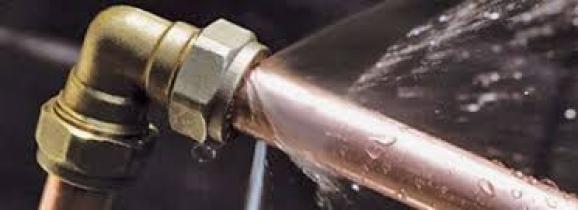The Home's Common Typical Water Leak Causes: Analysis
The Home's Common Typical Water Leak Causes: Analysis
Blog Article
Just how do you feel with regards to Common Water Leaks In House?

Leaks not just create waste of water but can also cause unnecessary damage to your residence and advertise undesirable natural growth. By looking and also comprehending for daily circumstances that create leakages, you can safeguard your house from future leakages and unneeded damages.
Trespassing roots
A lot of water leaks start outside the house instead than inside it. You may discover damp patches or sinkholes in your backyard, and that might suggest that tree origins are getting into water lines creating water to permeate out.
Corroded water supply
As time passes by, your plumbing system ages and also corrosion such as corrosion may start eating away the pipelines. This could be the reason for staining or bending on your pipes. This asks for an assessment with your plumber immediately. If our plumbing system is old, take into consideration replacing the pipelines since they go to a higher risk of corrosion than the newer designs.
Faulty Pipe Joints
The point at which your pipes connect is frequently the weakest web link in the waterline. Pipeline joints can deteriorate in time, resulting in water leaks. The majority of pipe joints are not conveniently noticeable. If you have noisy pipelines that make ticking or banging noises, especially when the hot water is switched on, your pipe joints are probably under a great deal of pressure. It is advisable to have your plumber inspect your system annually.
Instant temperature changes.
Extreme temperature modifications in our pipes can trigger them to broaden and contract all of a sudden. This expansion and contraction might create fractures in the pipes, particularly if the temperature are below freezing. It would be best if you kept an eye on exactly how your plumbing works. The existence of the formerly mentioned scenarios often indicates a high threat.
Poor Water Connectors
At times, a leakage can be triggered by loose hoses and pipelines that provide your home appliances. More often than not, changing is what creates the loosened water Links. You may discover when it comes to a cleaning equipment, a tube may spring a leakage due to shaking throughout the spin cycle. In case of a water links leakage, you might see water running directly from the supply line or puddles around your appliances.
Blocked Drains
Obstructed drains could be irritating and also inconveniencing, however they can sometimes wind up triggering an overflow resulting in rupture pipes. Maintain removing any kind of products that may go down your drains pipes that can clog them to avoid such hassles.
All the above are root causes of leaks however not all water leaks result from plumbing leakages; some leaks could originate from roof covering leakages. All leakages need to be repaired promptly to stay clear of water damage.
Leakages not just cause waste of water but can likewise create unneeded damage to your house and also promote undesirable natural growth. By looking and also recognizing for daily scenarios that create leaks, you can secure your house from future leaks as well as unneeded damages. Today, we will look at 6 leak causes that may be triggering your pipes to leak.
At times, a leak can be triggered by loose hoses as well as pipes that provide your home appliances. In situation of a water connections leakage, you might observe water running directly from the supply line or puddles around your home appliances.
How To Check For Water Leak In Your Home
How To Check for Leaks
The average household's leaks can account for nearly 10,000 gallons of water wasted every year and ten percent of homes have leaks that waste 90 gallons or more per day. Common types of leaks found in the home are worn toilet flappers, dripping faucets, and other leaking valves. These types of leaks are often easy to fix, requiring only a few tools and hardware that can pay for themselves in water savings. Fixing easily corrected household water leaks can save homeowners about 10 percent on their water bills.
To check for leaks in your home, you first need to determine whether you're wasting water and then identify the source of the leak. Here are some tips for finding leaks:
Take a look at your water usage during a colder month, such as January or February. If a family of four exceeds 12,000 gallons per month, there are serious leaks.
Check your water meter before and after a two-hour period when no water is being used. If the meter changes at all, you probably have a leak.
Identify toilet leaks by placing a drop of food coloring in the toilet tank. If any color shows up in the bowl after 10 minutes, you have a leak. (Be sure to flush immediately after the experiment to avoid staining the tank.)
Examine faucet gaskets and pipe fittings for any water on the outside of the pipe to check for surface leaks.
Undetected water leaks can happen without the home or business owner even realizing. If you suspect a water leak, but not able to find the source. It is time to contact a professional water leak detection service, The Leak Doctor.
How To Find a Water Leak In Your Home
https://www.leakdoctor.com/blog/How-To-Check-For-Water-Leak-In-Your-Home_AE197.html

As a passionate reader on How Fast Water Damage Can Ruin Your Home, I was thinking sharing that excerpt was smart. For those who enjoyed our article kindly remember to share it. Thanks for your time. Kindly check up our site back soon.
Top-notch care? Dial. Report this page